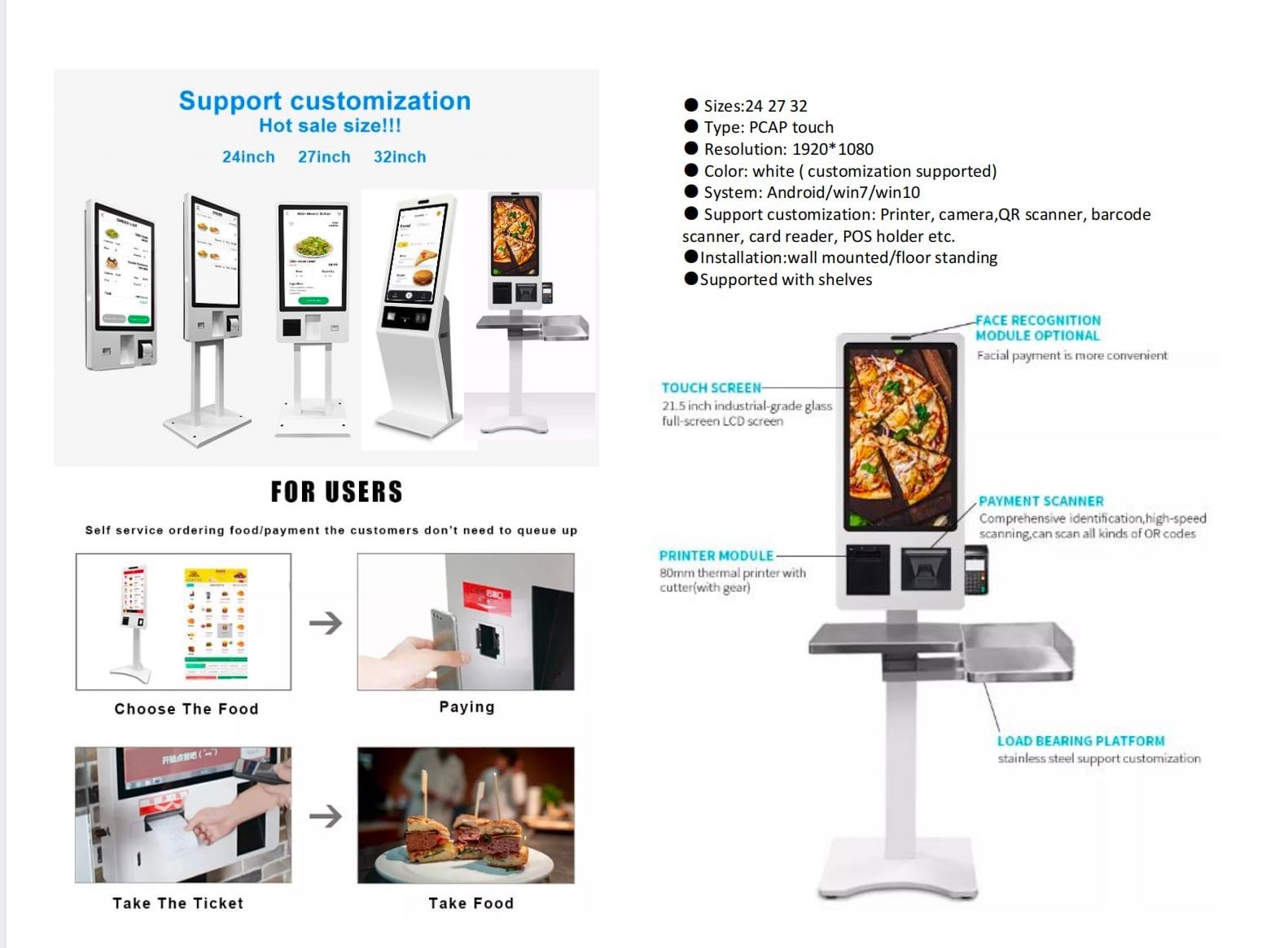Self-service Kiosk

A self-ordering kiosk is an interactive touch-screen device commonly found in retail, restaurants, and fast-food environments. It allows customers to place their orders independently without interacting with a cashier. Here are some key features of a self-ordering kiosk:
1. User-Friendly Interface
- Intuitive and easy-to-navigate touch-screen interface.
- Large, clear buttons and icons to facilitate ordering.
- Multi-language support for diverse customer bases.
2. Customizable Menu
- Displays digital menus with real-time updates for availability and pricing.
- Allows customers to browse and customize their orders, including ingredient adjustments or modifications.
- Integration of upselling and cross-selling features (e.g., suggesting additional items like drinks or desserts).
3. Payment Options
- Integrated payment system supporting multiple payment methods: credit/debit cards, mobile payments (Apple Pay, Google Pay), and NFC payments.
- Option to print a receipt or receive a digital one via email or SMS.
4. Order Confirmation & Tracking
- Visual and auditory confirmation of order placement.
- Integration with order tracking systems, such as displaying order status or queue numbers.
- Option for customers to select table delivery or self-pickup.
5. Integration with POS System
- Syncs with the point-of-sale (POS) system to streamline order processing.
- Real-time updates on stock availability, order queue, and sales tracking.
6. Customization & Branding
- Customizable software that allows for branding elements, like logos and themes.
- Ability to customize promotional messages and highlight special offers.
7. Accessibility Features
- ADA-compliant design, including height-adjustable screens and screen readers for visually impaired customers.
- Voice-activated ordering for customers with mobility or visual impairments.
8. Analytics & Reporting
- Data collection for business insights, such as peak order times, popular items, and customer preferences.
- Integration with loyalty programs to enhance customer engagement.
9. Contactless and Hygienic Options
- Support for contactless ordering using QR codes or mobile apps.
- Integration with antimicrobial screen technology for enhanced hygiene.